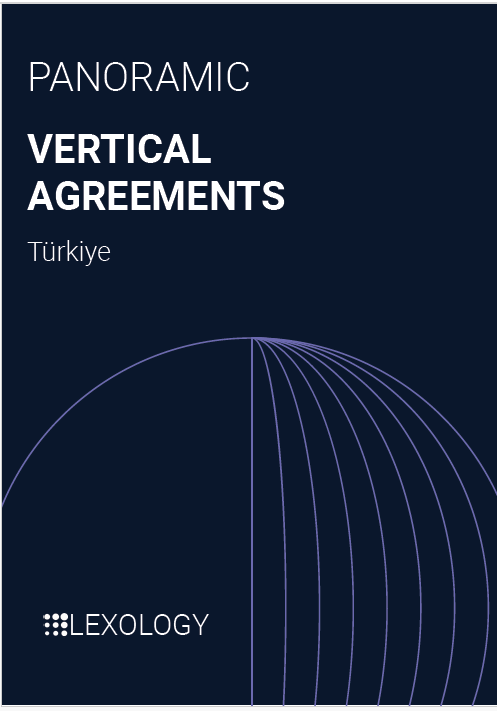CJEU's Planet49 Decision: An Update on Valid Consent for Cookie Usage
| Data Protection

CJEU's Planet49 Decision: An Update on Valid Consent for Cookie Usage
Article by Barış Yüksel, Baran Can Yıldırım, and Fırat Eğrilmez
On October 1st, Court of Justice of the European Union ("CJEU" or the "Court") issued a decision (i.e. Planet49 Decision) given pursuant to the preliminary ruling procedure upon German Federal Court of Justice's inquiry regarding interpretation of data protection and e-privacy rules applicable in the European Union ("EU") .
Planet49 ruling of the CJEU may be considered one of the most significant decisions given until now, as it provides detailed insight as to how the data protection rules regarding valid consent shall be applied in an uniform manner within the jurisdictions of EU member states, when data is collected/processed by using cookies.
In this regard, the ruling sheds light on some controversial issues which could not have been clarified through a strict reading of the applicable rules. These issues include, among others, (i) whether continued browsing of a website per se may constitute a valid consent, (ii) whether a pre-ticked box may constitute a valid consent for placing cookies on website users' devices, and (iii) whether the answers of the above apply to cookies that do not collect personal data.
On the other hand, the ruling leaves out in the open some very important other issues such as (i) whether cookie walls, which are basically banners that does not allow the user to browse the website unless they consent that cookies be placed on their devices, are admissible (ii) whether subsequent use of consented cookies may constitute a lawful processing based on the previously given consent.
Throughout this article we will first lay out the background of the case and then move on to discussing the Court's guidance towards the abovementioned issues. Finally, we will briefly discuss what this decision should mean to data processor websites.
Key Facts of the Case
The preliminary ruling request has been referred to the CJEU by a German Court in a dispute between Planet49 - an online gaming company - and German Federal Union of Consumer Organisations and Associations / Federation of Consumer Organisations, wherein Planet49 had organized a promotional lottery, by which the participants are required to give consent for transferring their personal data.
To put it more clearly, in 2013, Planet49 organised a promotional lottery on its website, through which it required the internet users wishing to participate to the lottery to give consent for transferring some of their personal data (i.e. postcodes, names and addresses), which may then be used for marketing purposes, to Planet49's sponsors and cooperation partners. The mechanism for consent as to the transfer of the said data to third parties was designed by Planet49 via a chechbox without a preselected tick ("first checkbox"), including a bodytext informing the participants about the extent of data transfer and to whom the data could be transfered. The body text indicated that with the consent provided by the participant, Planet49's sponsors and partners may provide them with offers by post, telephone, e-mail or SMS and the consent can be revoked any time. Prospective participants were required to tick this first checkbox in order to become eligible for participating the lottery.
As a part of the participation process, there is another checkbox ("second checkbox") containing a preselected tick indicating that by not reversing the pre-selected tick in the checkbox, the participant gives consent to Planet49 for setting cookies that track the participants' surfing and use behaviour on websites of Plante49's advertising partners and to receive ads based on their interests.
An appeal was brought before the German Federal Court of Justice, concerning a dispute between the parties on the ground that the consent requested by Planet49 through the first and second checkboxes did not meet the requirements set forth by the German Civil Code ("BGB") and the Court decided that the success of the appeal process is dependent upon interpretation of the following questions by the CJEU, via a preliminary ruling:
Does giving permission by a pre-checked checkbox, which the user must deselect to refuse his/her consent, constitute a valid consent as per the Directive 2002/58/EC ("ePrivacy Directive") and the Regulation 2016/679 ("GDPR")?
Does it make a difference if the information stored or accessed is deemed as personal data, within the meaning of ePrivacy Directive?
What is the scope of the information, which is required to be provided to the user in a clear and comprehensive manner per the ePrivacy Directive, and shall the information include duration of the operation of the cookies and detail the third parties that are given access to the cookies?
CJEU's Guidance
The Court started with interpreting the question as to whether pre-checked checkbox could be deemed as valid consent when users' information will be stored or the information that is already stored in their terminal equipment (for example, computers) will be accessed via cookies.
The Court indicated that as per article 5(3) of the ePrivacy Directive, the user must provide consent for usage of cookies in its terminal equipment, although the ePrivacy Directive does not expressly set forth how such consent should be provided. Referring to the recital 17 of the ePrivacy Directive to that end, the Court expressed that the consent must constitute a freely given, specific and informed indication of users' wishes, which may be manifested in the form of "ticking a box when visiting an internet website". Although the Court does not refer to the recitals of GDPR in discussing the requirements of a valid consent, it is worth to mention that recital 32 of GDPR has exactly the same wording as recital 17 of the ePrivacy Directive, and reads as follows: "[Establishing a valid consent] could include ticking a box when visiting an internet website."
The Court further indicates that ePrivacy Directive refers to Directive 95/46, with regards to the definition of "consent", and sets forth that while article 2(h) of the Directive 95/46 defines "the data subject's consent" as "any freely given specific and informed indication of his wishes by which the data subject signifies his agreement to personal data relating to him being processed", as per article 7(a) of the Directive 95/46, processing of data is conditional upon data subject's consent given in an "unambiguous" manner.
The Court interpreted that in order for users to set forth such an unambiguous consent, they shall perform an active behaviour and accordingly, it is objectively impossible to deem user consent given by not deselecting a pre-ticked checkbox as valid, even the user is informed.
It is also worth mentioning that the consent within the meaning of ePrivacy Directive was construed as an indication of data subject's wish, which shall be "specific". In that sense, the Court indicated that the consent must relate specifically to the activity of data processing and wishes manifested by the data subject for other purposes could not be interpreted as their consent. The Court applied this approach to the relevant case as expressing that user's activity of selecting the button to participate in the promotional lottery do not constitute a sufficient indication of data subject's valid consent to the storage of the cookies.
In light of the determinations made as to the first inquiry, it may be concluded that continued browsing cannot constitute a valid consent within the meaning of the data protection rules for placing cookies on the users' devices, as such continued browsing does not present an active behaviour indicating the consent.
As regards the second inquiry, the Court emphasized that the rules set forth in the ePrivacy Directive is applicable in cases where "storing of information, or the gaining of access to information already stored, in the terminal equipment of a subscriber or user". Moreover, the Court added that the data which Planet49 is intended to collect and process, is personal since the cookies placed by Planet49 were thought to contain a number which is assigned to the registration data of a given user, who - as a pre-requisite for participating to the lottery - is required to submit his or her name and address and therefore linking the cookie with users' personal information consitutes processing of personal data. Nevertheless, the Court did not distinguish the personal data and non-personal data with regards to the application of the above. Indeed, the Court stated that the purpose as well as the mere wording of the Article 5(3) of the ePrivacy Directive is to protect "user from interference with his or her private sphere, regardless of whether or not that interference involves personal data."
Lastly, as to the third question, wherein it was inquired that article 5(3) of the ePrivacy Directive shall be interpreted in a way that data processor is required to provide information on the duration of cookie operations and whether third parties have access to the cookies, or not, the Court initially noted, by pointing out the requirement of fair data processing, that "clear and comprehensive information in accordance with Directive [95/46]" shall be provided to the users before the consent was granted.
Moving on, the Court noted that article 10 of the Directive 95/46, which is referred to by both GDPR and ePrivacy Directive, provides a detailed list of information, which is required to be provided by the data controller to the data subject, if the data relating to them is collected. As per the list, it is underlined that the following items are clearly required to be provided to the data subject, when their data is collected:
- identity of data controller,
- purposes of the data processing and
- data recipients/categories of data recipients.
Noting that "duration of data processing" is not listed among the information set forth by article 10 of the Directive 95/46, the Court interprets from the provision thereof, which reads: "Member States shall provide that the controller (...) must provide a data subject (...) with at least the following information (...)", that the items listed in article 10 is not exhaustive. Furthermore, the Court express that the duration of data processing is a necessary item, regarding to which the data subject shall be informed to ensure fair and transparent processing by referring to the article 13(2)(a) of the GDPR. Thus, the Court concludes that information on duration of data processing shall be provided to the data subject, for data collection with cookies to be deemed as fair data processing.
What's New?
While Planet 49 Decision sheds lights either directly or indirectly to the issues surrounding what constitutes a valid consent in placing cookies to the users' devices when they navigate through the relevant website, some important issues are left out in the open. The most significant examples for the former may be listed as follows:
- pre-ticked boxes do not demonstrate a valid consent,
- continued browsing is not likely to amount to a valid consent, as valid consent requires "active behaviour with a clear view",
- aforesaid rules apply to both personal and non-personal data.
On the other hand, it is still not clear whether cookie walls, as a very wide-spread practice among the websites, would violate data protection rules, which block the view of a website unless the user consent to placing cookies in their devices. Similarly, the legality of subsequent use of already consented cookies was not pointed out to in the Planet 49 Decision.
With GDPR's entry into force in 2018 (and prior to Planet49 decision), the ambiguity pertatining to the question as to which elements should a valid consent include, in cases where data subject is asked for his/her consent for data processing via cookies, has already been eliminated to a certain degree, since recital 32 of the GDPR indicates that the consent should be given by "a clear affirmative act" and exemplifies "ticking a box when visiting a website" for and excludes "silence, pre-ticked boxes or inactivity" from a valid consent.
Recital 173 and Article 95 establishes a lex generalis-lex specialis relationship between GDPR and ePrivacy Directive, wherein provisions of GDPR applies to all cases related with the subject matter, unless the case at hand is specifically regulated by the ePrivacy Directive. Therefore, the standard set forth in the GDPR, which deems consent valid when it is "a clear affirmative act", also applies to the cases that fall within the scope of the ePrivacy Directive and if the ePrivacy Directive requires otherwise.
However, prior to GDPR's entry into force, it was indeed ambigous whether to accept pre-ticked boxes or other passive ways of approval for data collection as a valid consent, when a data controller aims to collect information via cookies. For instance, Directive 2009/136/EC of 25 November 2009, which amended the ePrivacy Directive, indicated that the user's consent may be given by way of alternating the browser or another application's settings, in its recital 66. Although, Directive 2009/136/EC emphasized the significance of providing users with clear and comprehensive information as well as enabling them to refuse data collection, in the most user-friendly manner as possible, before deploying cookies, it suggested that a valid consent for data collection via cookies may be given in a relatively passive action (i.e. by usage of browser settings).
It is also noteworthy to mention that, the Opinion 1/2008 on data protection issues related to search engines of the Working Party formed as per Article 29 of Directive 95/46, had indicated that the responsibility for data processing via cookies "cannot be reduced to the responsibility of the user for taking or not taking precautions in his browser settings", contrary to what Directive 2009/136/EC put forth.
All in all, it should be noted that there was an ambiguity as to what constitutes a valid consent when there is data collection or processing via cookies, prior to GDPR's entry into force. In that sense, Plantet49 Decision of the CJEU is a milestone, as it further contributes to GDPR for removing the ambiguity present prior to GDPR's entry into force by providing concrete interpretation regarding both GDPR and other related rules (i.e. ePrivacy Directive and Directive 95/46) in conjunction with GDPR and shed light on the interplay between them.







